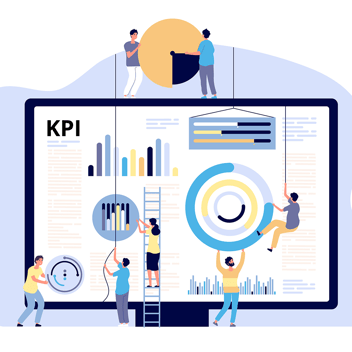Insights
Key Takeaways from the Digitalization in Oil and Gas Event
The September 2024 Digitalization in Oil and Gas event served as a key platform for industry leaders to discuss emerging trends and challenges. As the energy sector navigates the complexities of digital transformation, particularly on the growing role of artificial intelligence (AI) and its applications. In this blog, we share ChaiOne’s perspective on the most impactful takeaways and explore how these insights could shape the future of the industry.
1. Growing Interest in AI and Digital Twins
One of the most prominent themes of the event was the industry's growing interest in AI. The sector recognizes the power of AI, but there are still many questions about how it can be applied effectively. Many attendees expressed curiosity about more advanced AI solutions, particularly digital twins and Retrieval-Augmented Generation (RAG) models. These technologies represent a significant step beyond basic AI prompting, allowing companies to simulate real-world processes and make data-driven decisions.
Digital twins, which create a virtual model of physical assets, can optimize operations, predict equipment failures, and improve safety protocols. These solutions are beginning to gain traction as companies look for ways to enhance efficiency and reduce operational costs. The potential of these technologies is immense, but the event underscored a key challenge—closing the knowledge gap. Many in the industry are still in the early stages of understanding how to deploy AI effectively, and this will require ongoing education and collaboration. You can know more about his in our blog How to build better tech products with a digital twin.
2. Outsourcing AI Solutions: A Growing Trend
Another trend highlighted at the event was the increasing reliance on outsourcing for AI-based solutions. In the U.S., many companies are turning to external providers for AI services rather than developing these capabilities in-house. Outsourcing offers several advantages, including access to specialized expertise and faster implementation timelines. However, it also raises questions about data security and intellectual property protection, issues that were discussed extensively during the event.
As companies navigate the balance between outsourcing and internal development, it is essential to carefully evaluate the long-term impact on innovation and competitive advantage. Building internal capabilities around AI could offer greater control over critical processes and data, while outsourcing provides a faster route to adoption.
3. The AI Infancy and Challenges of Data Bias
The event also brought attention to the fact that AI is still in its infancy, particularly in the oil and gas sector. While the technology has made significant strides, there are still many hurdles to overcome. One of the most pressing concerns raised during the event was data bias. AI systems rely heavily on the quality and accuracy of the data they are fed, and biased or incomplete data can lead to incorrect or even harmful decisions.
Combating bias in AI models is a complex challenge that requires more than just technical solutions. It calls for a cultural shift within organizations to ensure that the data used to train AI systems is as unbiased and representative as possible. Attendees emphasized the importance of trust in data, with some suggesting that the industry needs to invest more in developing frameworks for unbiased data governance.
.png?width=820&height=429&name=Blog%20key%20learnings%20from%20Oil%20%26%20Gas%20(1).png)
4. AI as a Tool to Assist, Not Replace
Another important discussion at the event was around the role of AI as a tool to assist employees rather than replace them. There is growing consensus that AI should be used to augment human decision-making, particularly in areas like data retrieval and analysis. AI can take over mundane, repetitive tasks, freeing up employees to focus on higher-level problem-solving and strategic thinking.
This perspective represents a shift away from the fear that AI will fully automate jobs in the oil and gas sector. Instead, the technology is seen as a valuable partner that can enhance workforce productivity and improve decision-making processes.
5. Emerging Technologies in Drilling Optimization
One of the most exciting trends discussed was the use of AI to optimize drilling operations. Advanced AI models, combined with complex mathematical formulations, are helping companies estimate outcomes and determine the best wells to drill. This capability could be a game-changer for the industry, particularly as it seeks to reduce costs and improve the efficiency of exploration and production (E&P) activities.
The ability to predict the success of drilling operations with greater accuracy could significantly lower the risks associated with exploration and increase overall profitability. However, as with other AI applications, the challenge lies in ensuring that the models are trained on high-quality, unbiased data.
6. Fostering a Culture of Transformation
The event emphasized that while technology is crucial, human factors remain the most important in driving digital transformation. Culture plays a pivotal role in ensuring that digital initiatives take root and thrive within organizations. Many speakers highlighted the need to foster a culture of change, where small wins and specific use cases can build momentum for larger-scale innovations.
Human champions of change are essential for overcoming resistance and ensuring that new technologies are integrated effectively. Starting with process improvement initiatives and gradually expanding digital solutions can help organizations unlock bigger opportunities for innovation.
Conclusion
The Digitalization in Oil and Gas event made it clear that AI and digital technologies hold great potential for transforming the industry. However, realizing that potential will require overcoming knowledge gaps, addressing data bias, and fostering a culture of innovation. By focusing on small, achievable wins and building internal expertise, the oil and gas sector can stay ahead of the curve in its digital transformation journey. As AI continues to evolve, its role in optimizing operations, reducing costs, and enhancing decision-making will only become more significant.



